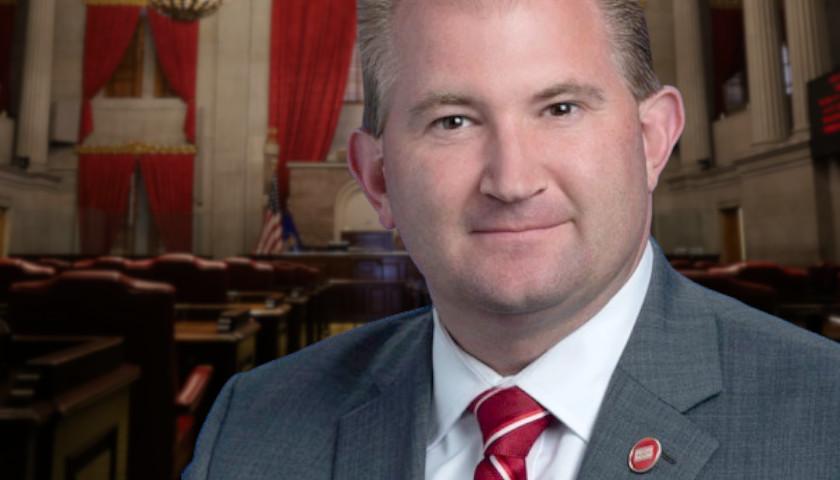Pennsylvania Senate Minority Appropriations Chairman Vincent Hughes (D-Philadelphia) announced Monday he aims to achieve the largest public-school funding boost in state history this year.
Basic education funding has already seen a record-setting four-percent spending increase for the current fiscal year, with $7.07 billion in state-taxpayer dollars now going to public schools. (About twice that amount also gets allotted to schools annually from local property-tax revenues.)
In next year’s budget, Hughes would appropriate an additional $3.75 billion. That would include $1.85 billion to address what he and other progressives decry as inadequate and inequitable disbursement of state dollars to school districts across the commonwealth. Hughes and other advocates at Monday’s online press conference noted that several districts are litigating in state court to secure what they consider a fairer funding formula.
The senator would furthermore spend $1.1 billion to rectify hazardous or deficient school facilities, $250 million to replenish shorthanded staffs, $125 million to address students’ mental-health concerns and $100 million to bolster academic programs.
“This proposal, the Full Funding Plan, will be the largest increase in education funding in the history of the Commonwealth of Pennsylvania,” he said. “This historic proposal matches not just this historic moment but also matches historic revenues that exist in Pennsylvania and are projected to come to Pennsylvania by June 30.”
Although supporters of such a vast funding increase have an ally in Gov. Tom Wolf (D), they will first have to get it through a GOP-controlled General Assembly.
Hughes’s plan does not seek to realize any savings by reforming the Keystone State’s costly school-employee pension plans or by cutting other expenses. It therefore unsurprisingly boasts significant teachers’-union support. Philadelphia Federation of Teachers president Jerry Jordan called the measure “urgently needed” and said his organization would “fight tirelessly to advocate for its passage.”
Backers of the proposal said some of it would be paid for by tapping $2.2 billion from the March 2021 American Rescue Plan that has yet to be spent. They also observed that Pennsylvania’s revenues for the next budget year are projected to surpass initial estimates by over $2 billion.
Nevertheless, as Allegheny Institute for Public Policy research director Eric Montarti told The Pennsylvania Daily Star, the COVID-relief portion of the funding for Hughes’s plan is non-recurring. If Senate Democrats expect to maintain their proposed spending increase in future budget years, they will need to come up with other financing sources.
“It is stimulus money and eventually it’s going to run out,” Montarti said. “So then it becomes a question of: Well, the money is now gone from the federal portion here; how do we replace it?”
Sen. Tim Kearney (D-Springfield), mentioning his background as an architect, spoke up for the building-remediation component of Hughes’s proposal. He said school-building maintenance in Pennsylvania is underfunded by about $2.7 billion annually. In the 2019-2020 school year, asbestos hazards led to 11 school closings.
“We’ve known for a shamefully long time that we need to address overcrowding, faulty heat and water systems, hazardous lead and asbestos issues in our facilities,” Kearney said.
Structural problems with public schools, particularly in Philadelphia, have garnered significant press attention in recent years. These deficiencies, however, have persisted despite that city’s school district spending approximately $24,000 yearly per student, about $9,000 more than schools spend per student in the U.S. on average. And after the commonwealth bestowed additional aid to Philadelphia to address school disrepair in 2018, The Philadelphia Inquirer reported that contractors flubbed many of the projects they were hired to complete, leaving some schools even worse off.
To some, the failure of government to alleviate maintenance issues in poorer school districts despite lavish spending has reinforced the case for school-choice programs like Pennsylvania’s Education Improvement Tax Credit and for expanded charter schools.
“If Philadelphia parents had widespread access to school choice, the district wouldn’t dare allow dangerous conditions to fester in schools,” the pro-free-market Commonwealth Foundation (CF) commented after the botched repairs were reported. “Fear of losing students to safer options would force the district to maintain its facilities more efficiently and be more transparent when problems are discovered.”
CF has also rebuked the suggestion that poorer school districts in Pennsylvania lack funding, something Hughes and his allies would partly address by adding $750 million to the state’s “Level Up” expenditure which is targeted toward “underfunded” districts. A recent analysis by CF showed less affluent school districts receive significantly more state funding than wealthier districts. In 2018-19, four out of five school districts getting Level Up money had per-student funding figures above the national average.
– – –
Bradley Vasoli is managing editor of The Pennsylvania Daily Star. Follow Brad on Twitter at @BVasoli. Email tips to [email protected].
Photo “Vincent Hughes” by Senator Vincent Hughes. Photo “Tim Kearney” by Senator Tim Kearney. Background Photo “Classroom” by Wokandapix.





